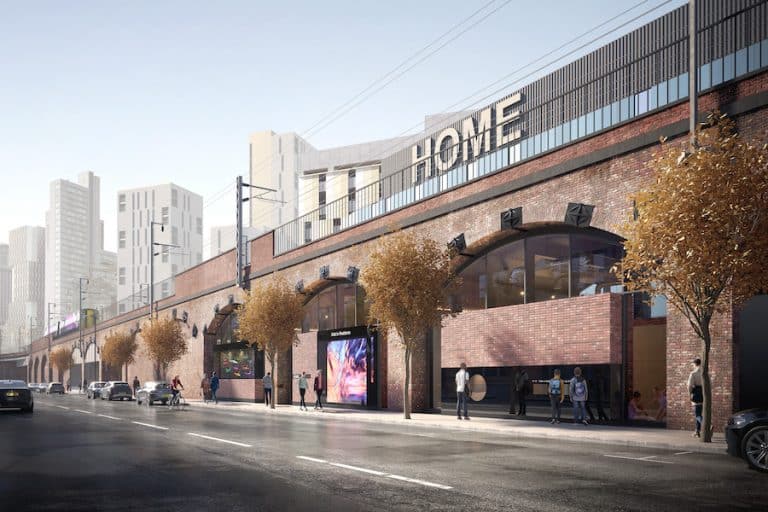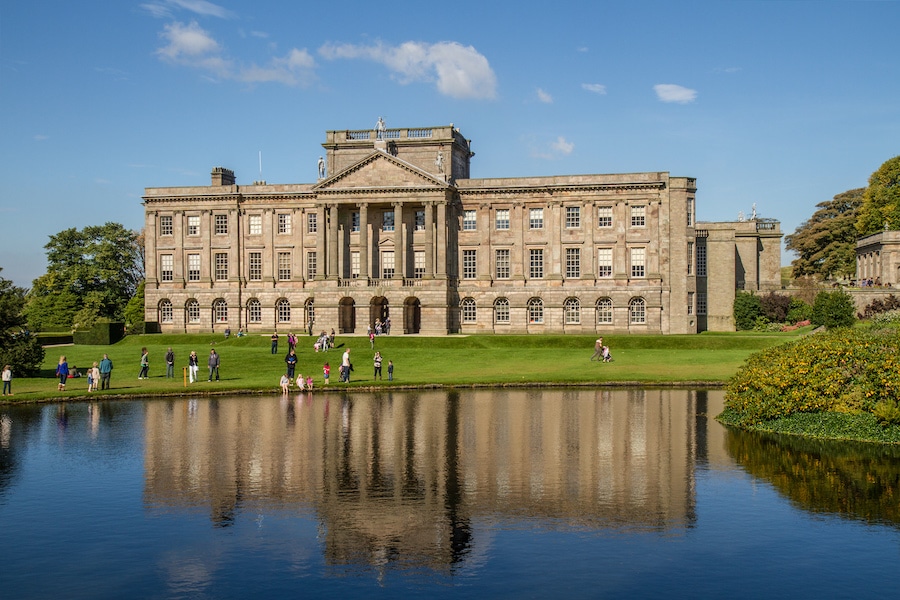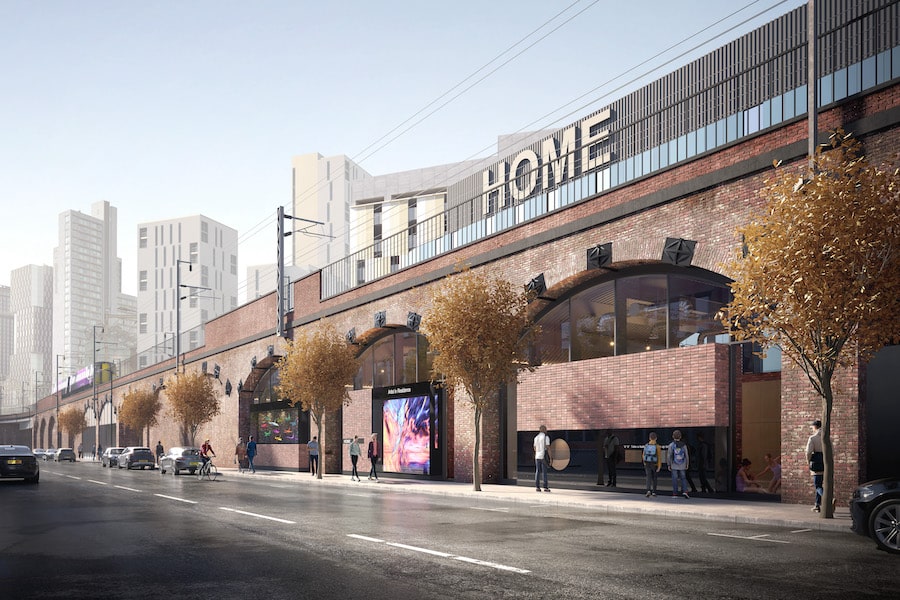The Portico Library and the making of modern Manchester
- Written by Thom Bamford
- Last updated 1 year ago
- City of Manchester, Community, Cornerstone, Culture, Exhibitions, Featured, People
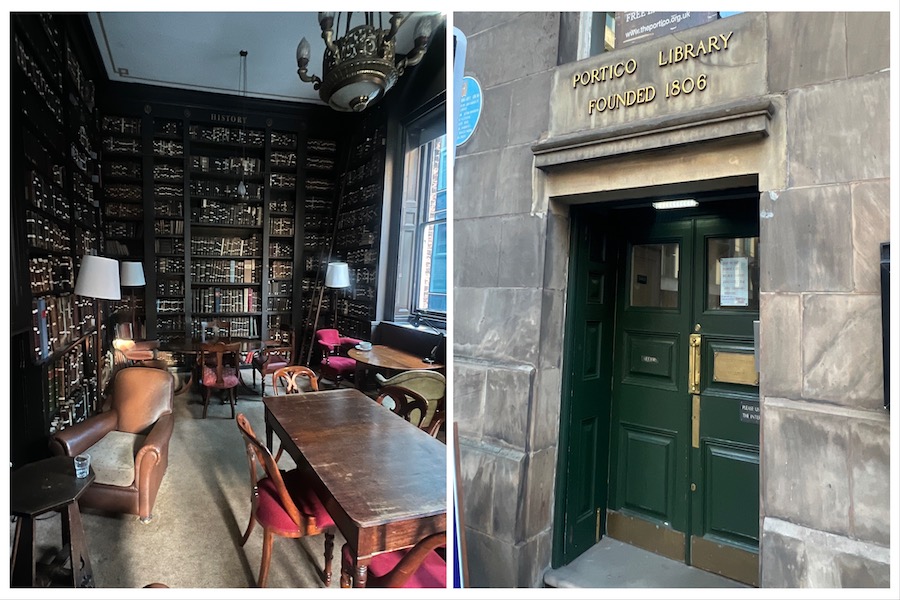
The Portico Library, also known simply as The Portico or Portico Library and Gallery, stands as a testament to Manchester’s historical significance during the emergence of the first modern city.
It holds an incredible selection of interesting titles from the day, including rare editions from Charles Dickens, Elizabeth Gaskell, Charlotte Bronte and Thomas De Quincy (to name just a few) and many more historically vital pieces of work.
The Portico Library
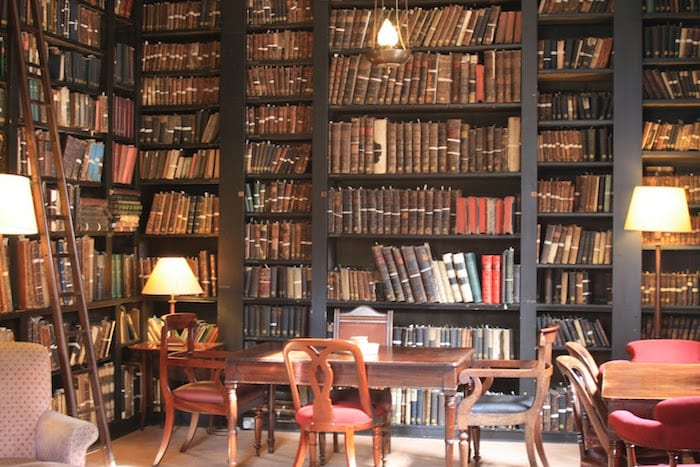
Established in 1806 by 400 founding subscribers, this independent subscription library and newsroom played a crucial role in the intellectual and cultural life of the city.
The library is housed in a Greek Revival-style building designed by Thomas Harrison of Chester and built between 1802 and 1806.
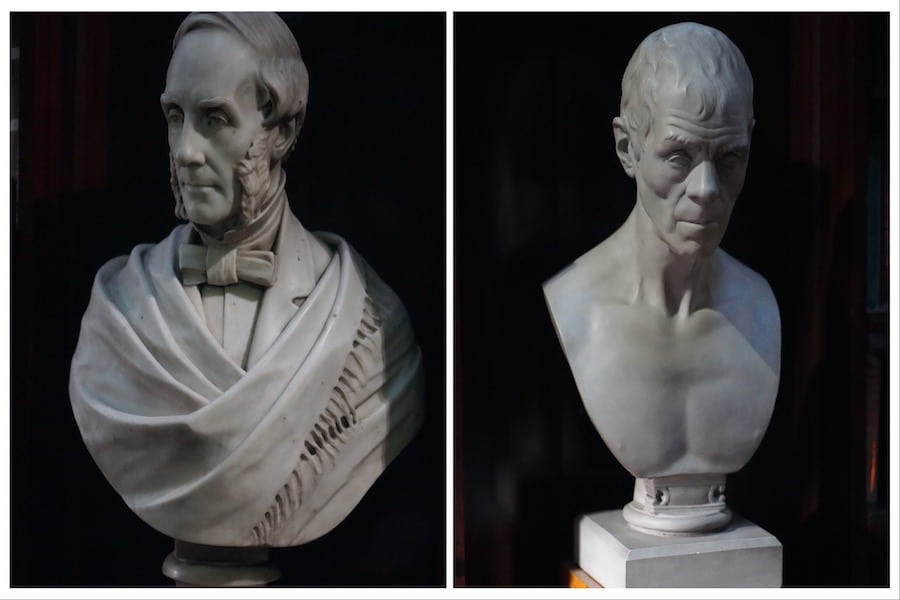
This architectural gem, a Grade II listed building, has been described as “the most refined little building in Manchester.”
The Most Refined Little Building in Manchester
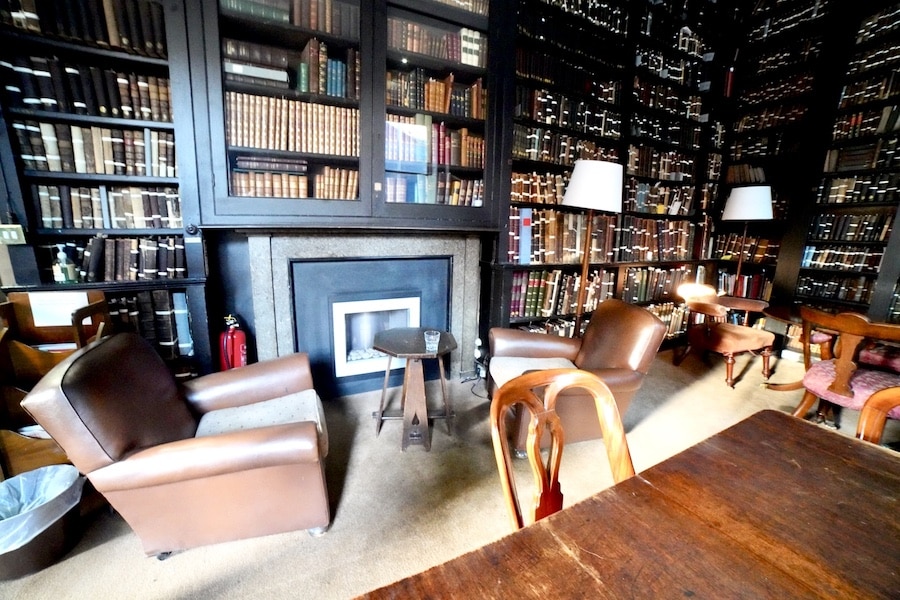
The library’s inception was a result of a meeting of Manchester businessmen in 1802, who resolved to create an institution that combined the advantages of a newsroom and a library.
Inspired by a visit to the Athenaeum in Liverpool, four of these visionaries sought to establish a similar institution in Manchester.
Paid for by The Industrial Revolution and British Empire
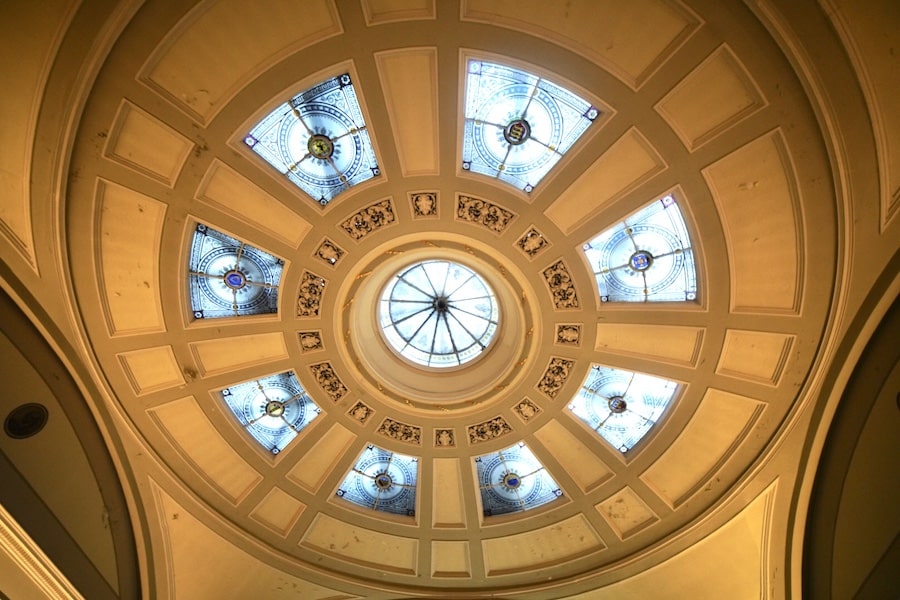
The funds for the library were raised through 400 subscriptions from the city’s men, reflecting the economic prosperity derived from the Industrial Revolution, British empire-building, and colonial expansion.
A Diverse Membership
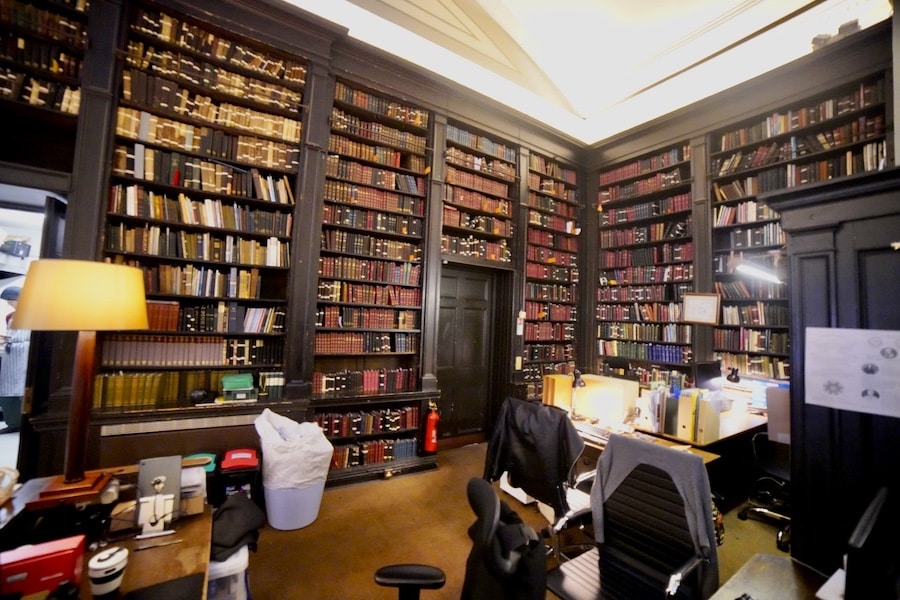
The early years of the Portico Library saw a diverse membership, including world-famous authors, future Prime Ministers, leading scientists, and educators.
However, it wasn’t until the Married Women’s Property Act of 1870 that women were able to become members. There was a bizarre situation where Elizabeth Gaskell, whose published work was displayed at the library, was not allowed to read the reviews of her work as women were not allowed downstairs where the newspapers were kept.
The library’s members held varying political positions, from Radical and Liberal abolitionists to exploitative factory owners.
Among them were influential figures like Peter Mark Roget, the first Secretary and author of the first English thesaurus, and John Dalton, the founder of atomic theory.
Even celebrated Manchester author Elizabeth Gaskell, along with her husband William Gaskell, who served as the library’s longest-serving Chair, was part of this intellectual community.
The Portico Library’s Architecture
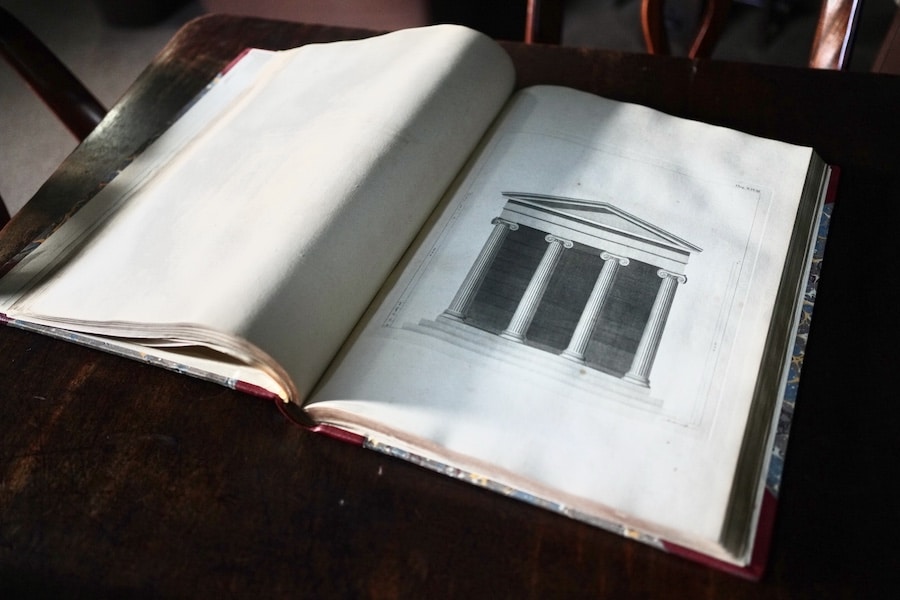
The library’s architecture, designed by Thomas Harrison, represents the first Greek Revival building in Manchester.
Its interior, inspired by John Soane, showcases a rectangular plan constructed in sandstone ashlar on a corner site at 57 Mosley Street.
The facade on Mosley Street features a three-bay pedimented loggia with Ionic columns, creating an elegant and distinctive appearance.
The Charlotte Street facade adds to its architectural charm with a five-bay colonnade of Ionic semi-columns.
More Than Just a Library
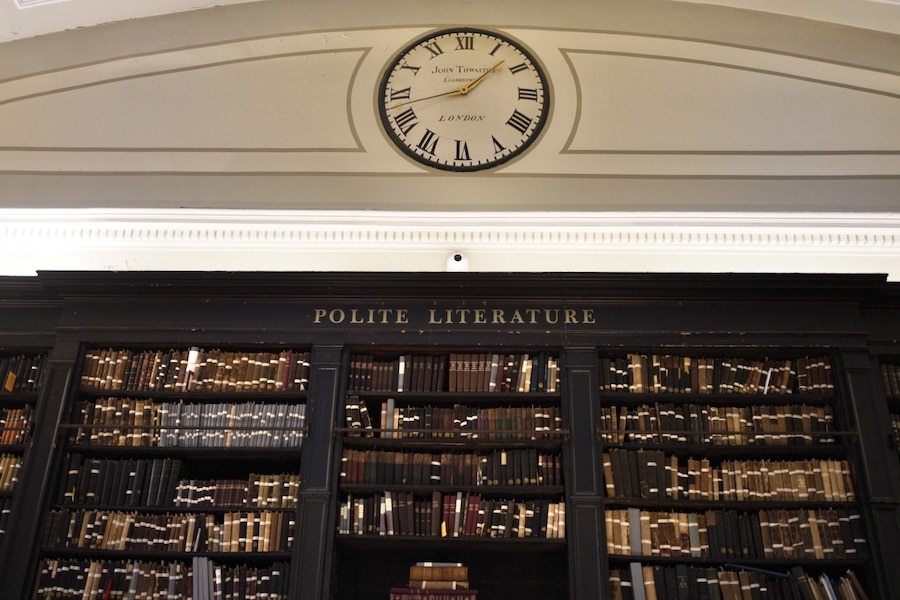
Over the years, the Portico Library has evolved into more than just a repository of books.
Today, it continues to be a hub for intellectual and cultural activities, hosting literary events, lectures, and exhibitions.
While the ground floor is now occupied by The Bank, a public house named after the Bank of Athens that leased the property in 1921, the library maintains its presence on the first floor with an entrance on Charlotte Street.
In addition to its cultural activities, the Portico Library is involved in promoting literature through various literary prizes.
The Portico Prize for Literature
The Portico Prize for Literature, established in 1985, is awarded biennially to works of fiction or poetry and non-fiction set mainly in the north of England.
The library also launched the Sadie Massey Award in 2015 to celebrate young writers in the North West.
The library’s notable members throughout its history include John Ferriar, its first chairman, and Peter Mark Roget, its first secretary.
Other prominent members include John Dalton, Reverend William Gaskell, Sir Robert Peel, and even more recently, Eric Cantona.
The building itself, as a Grade II listed structure, and could well be described as a living testament to Manchester’s historical and cultural journey.
Its architecture and the collection it houses serve as a reminder of the innovations, exclusions, and inequities of its time.
With a permanent stock of approximately 25,000 books, most from the nineteenth century, and a collection of recent publications, newspapers, and periodicals, the Portico Library remains a vital institution in Manchester’s cultural landscape.
Its archives, including committee receipts, minute books, and correspondence, offer a glimpse into the library’s rich history and the evolution of the city itself.
As a beacon of knowledge and culture, the Portico Library continues to thrive, bridging the past and the present in the heart of Manchester.
The Refurbishment of the Portico Library
The £453,964 development grant will contribute to the production of environmentally sustainable architectural plans, mapping out how the Library can reunite all three original floors of the Grade II* Listed building for the first time in more than 100 years.
During the development phase, which will start immediately, the Library will invite local communities to work with them on testing how to transform the ground floor and basement into an open and welcoming area with dining and exhibition areas, a ‘Northern Bookshop’, educational activities, a collections-care lab, plus flexible and high-quality event and meeting spaces.
The upper floors will conserve and enhance the existing heritage, showcasing the unique book collection, manuscript archive and architecture.
The technical access requirements, such as a lift, will be supported by creative consultation to establish how best to make the building fully accessible for all.
Speaking to I love MCR, John Carpenter, the Portico Library’s Chair, said: “The news that The National Lottery Heritage Fund is supporting the Portico Library’s bold scheme to open up and share its extraordinary heritage and collection, to Manchester residents and visitors, is a major cultural signal to Manchester, the North and the UK.
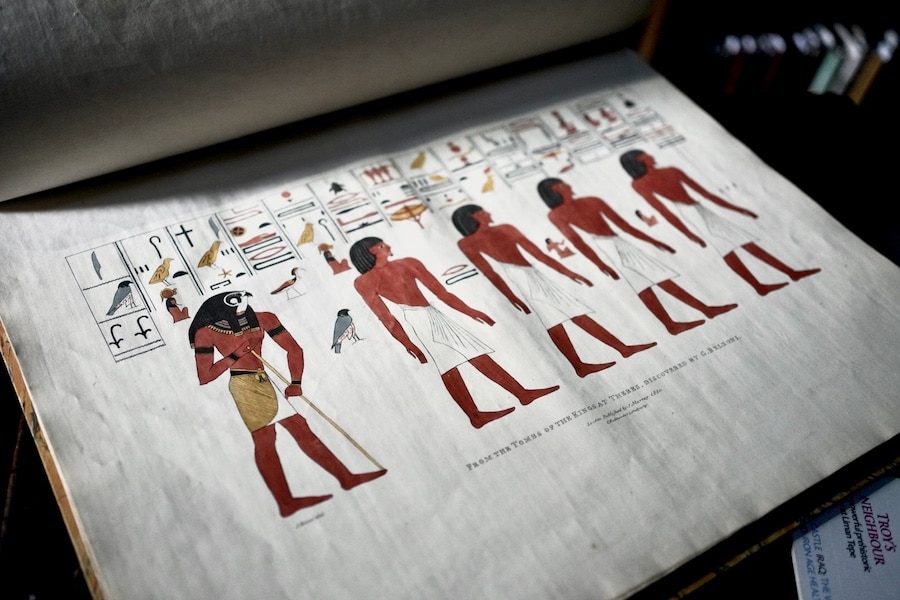
“This visionary project, years in the making, fulfils our mission of working with the many people in Manchester to explore, share, and celebrate their diverse stories and the city’s literary and global heritage.
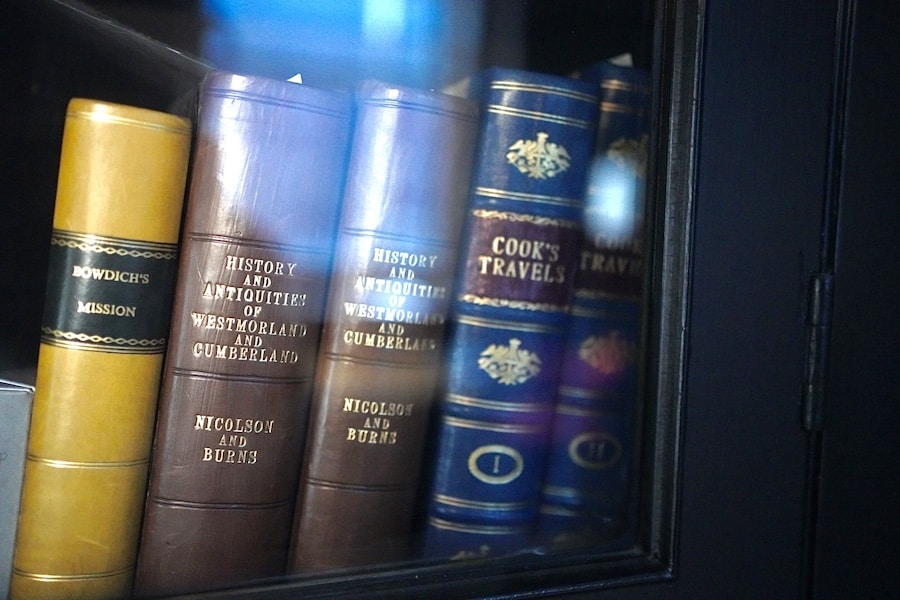
“Embracing creativity, collaboration and inclusivity, the project will unlock the Library’s past to plan for the future. We would like to thank the National Lottery players who have made it possible to realise our vision.”
Dave Moutrey, Director & Chief Executive at HOME and Director of Culture for Manchester City Council, said: “2023 has been an exceptional year for culture in the city: the reopening of the Manchester Museum, the launch of Aviva Studios – the permanent home for Manchester International Festival, and now news of substantial funding to transform the historic Portico Library.
“A bright and exciting future lies ahead for our ever-expanding culture corridor.”
How You Can Help
The Portico will be embarking on a range of fundraising activities to realise its ambitious plans so find out how you can get involved via the Portico website, make a donation, take out a membership, volunteer and sign up for updates on the latest news.
You can support them by clicking here
Follow the Portico Library on Instagram: @porticolibrary, Twitter: @ThePortico, Facebook: @ThePorticoLibrary, and LinkedIn @the-portico–library
- This article was last updated 1 year ago.
- It was first published on 30 November 2023 and is subject to be updated from time to time. Please refresh or return to see the latest version.
Did we miss something? Let us know: press@ilovemanchester.com
Want to be the first to receive all the latest news stories, what’s on and events from the heart of Manchester? Sign up here.
Manchester is a successful city, but many people suffer. I Love Manchester helps raise awareness and funds to help improve the lives and prospects of people across Greater Manchester – and we can’t do it without your help. So please support us with what you can so we can continue to spread the love. Thank you in advance!
An email you’ll love. Subscribe to our newsletter to get the latest news stories delivered direct to your inbox.
Got a story worth sharing?
What’s the story? We are all ears when it comes to positive news and inspiring stories. You can send story ideas to press@ilovemanchester.com
While we can’t guarantee to publish everything, we will always consider any enquiry or idea that promotes:
- Independent new openings
- Human interest
- Not-for-profit organisations
- Community Interest Companies (CiCs) and projects
- Charities and charitable initiatives
- Affordability and offers saving people over 20%
For anything else, don’t hesitate to get in touch with us about advertorials (from £350+VAT) and advertising opportunities: advertise@ilovemanchester.com


Dear England heads to LOWRY with a story that goes well beyond football

Review: Toxic at Lowry is ‘a raw and unfiltered dive into love and trauma’
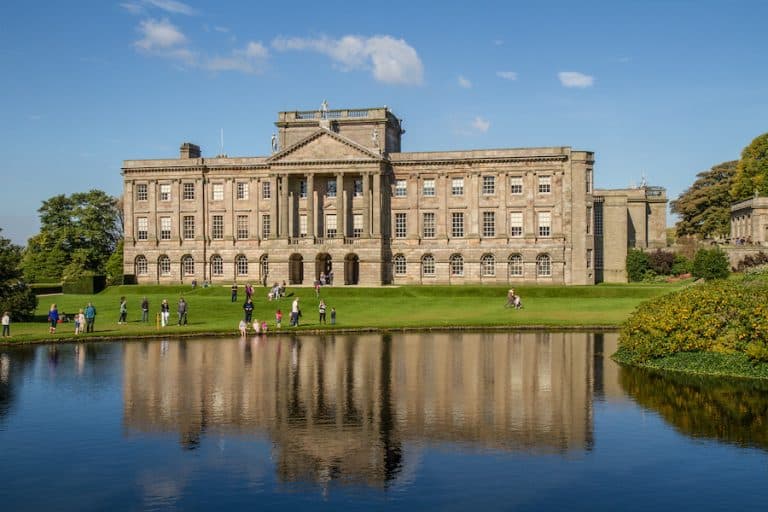
The picture-perfect walks in historic places that matter near Manchester
